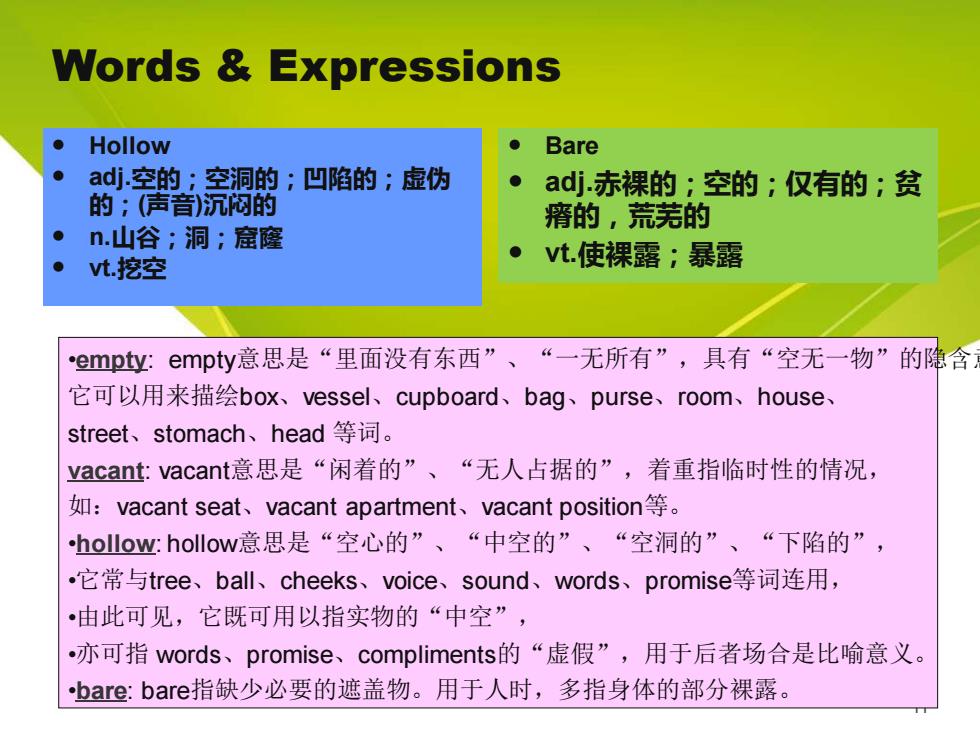
Words & ExpressionsBareHollowadj.空的:空洞的;凹陷的:虚伪adj.赤裸的;空的;仅有的:贫的:(声音)沉闷的痞的,荒芜的n.山谷:洞;窟隆vt.使裸露;暴露vt.挖空empty:empty意思是“里面没有东西”、“一无所有”,具有“空无一物”的隐含它可以用来描绘box、vessel、cupboard、bag、purse、room、house、street、stomach、head 等词。vacant:vacant意思是“闲着的”、“无人占据的”,着重指临时性的情况,如:vacantseat、vacantapartment、vacantposition等。hollowhollow意思是“空心的”、“中空的”、“空洞的”、“下陷的”它常与tree、ball、cheeks、voice、sound、words、promise等词连用,·由此可见,它既可用以指实物的“中空”,亦可指words、promise、compliments的“虚假”,用于后者场合是比喻意义。bare:bare指缺少必要的遮盖物。用于人时,多指身体的部分裸露
2025/4/5 11 Words & Expressions ⚫ Hollow ⚫ adj.空的;空洞的;凹陷的;虚伪 的;(声音)沉闷的 ⚫ n.山谷;洞;窟窿 ⚫ vt.挖空 ⚫ Bare ⚫ adj.赤裸的;空的;仅有的;贫 瘠的,荒芜的 ⚫ vt.使裸露;暴露 •empty: empty意思是“里面没有东西”、“一无所有”,具有“空无一物”的隐含意义, 它可以用来描绘box、vessel、cupboard、bag、purse、room、house、 street、stomach、head 等词。 vacant: vacant意思是“闲着的”、“无人占据的”,着重指临时性的情况, 如:vacant seat、vacant apartment、vacant position等。 •hollow: hollow意思是“空心的”、“中空的”、“空洞的”、“下陷的”, •它常与tree、ball、cheeks、voice、sound、words、promise等词连用, •由此可见,它既可用以指实物的“中空”, •亦可指 words、promise、compliments的“虚假”,用于后者场合是比喻意义。 •bare: bare指缺少必要的遮盖物。用于人时,多指身体的部分裸露
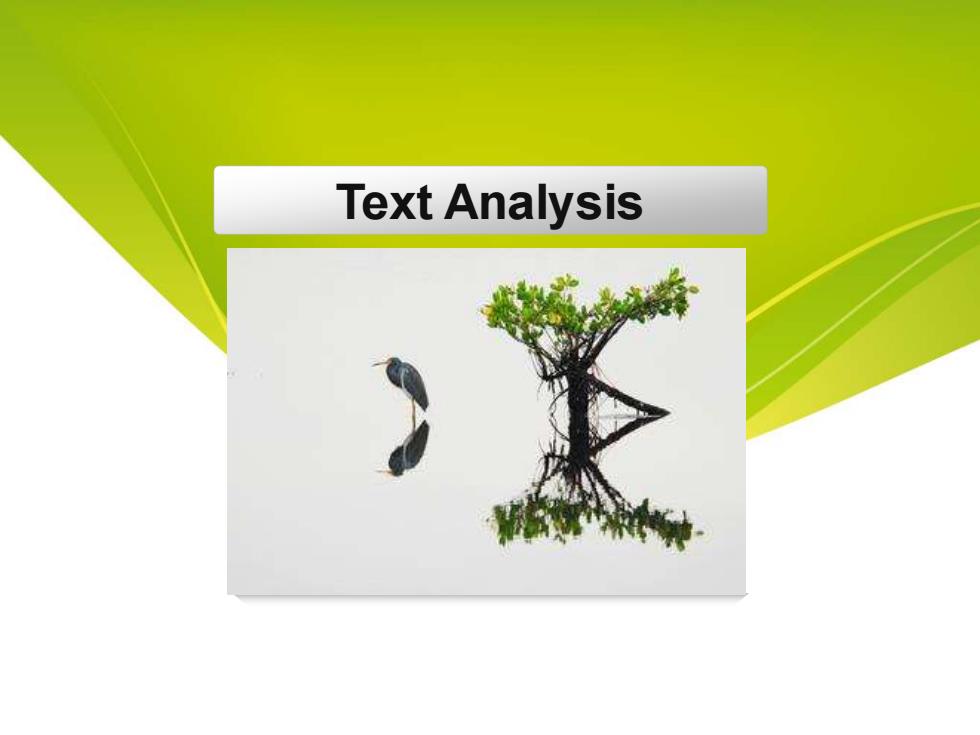
Text Analysis
Text Analysis
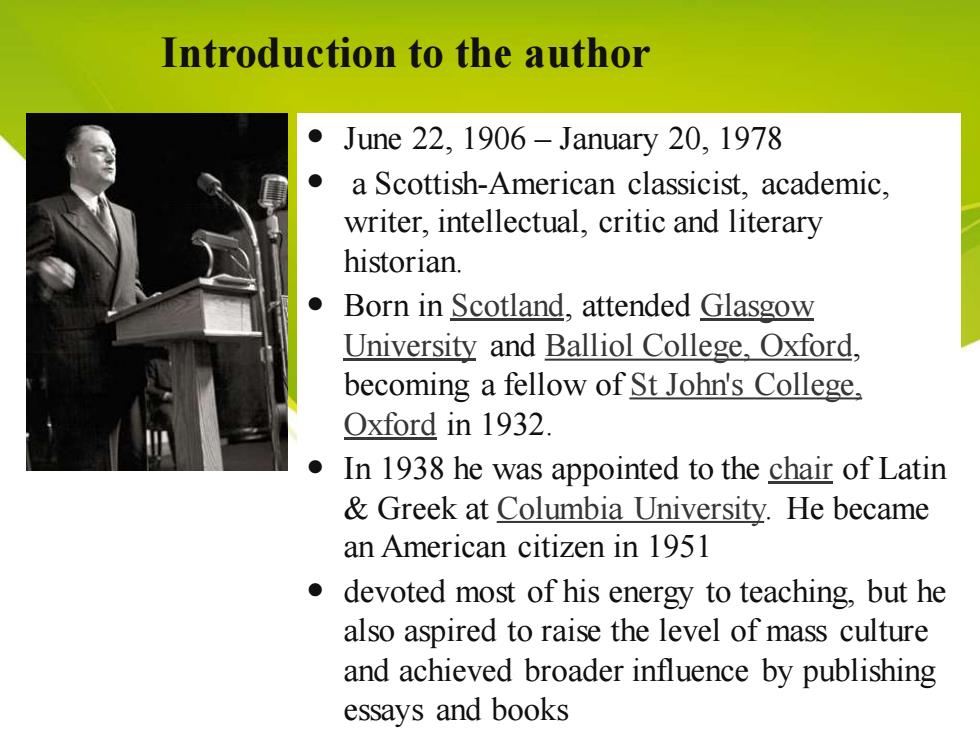
Introduction to the authorJune 22, 1906 - January 20, 1978a Scottish-American classicist, academicwriter, intellectual, critic and literaryhistorian.Born in Scotland, attended GlasgowUniversity and Balliol College, Oxford.becoming a fellow of St John's College.Oxford in 1932.In 1938 he was appointed to the chair of Latin& Greek at Columbia University. He becamean American citizen in 1951devoted most of his energy to teaching, but healso aspired to raise the level of mass cultureand achieved broader influence by publishingessaysandbooks
Introduction to the author ⚫ June 22, 1906 – January 20, 1978 ⚫ a Scottish-American classicist, academic, writer, intellectual, critic and literary historian. ⚫ Born in Scotland, attended Glasgow University and Balliol College, Oxford, becoming a fellow of St John's College, Oxford in 1932. ⚫ In 1938 he was appointed to the chair of Latin & Greek at Columbia University. He became an American citizen in 1951 ⚫ devoted most of his energy to teaching, but he also aspired to raise the level of mass culture and achieved broader influence by publishing essays and books
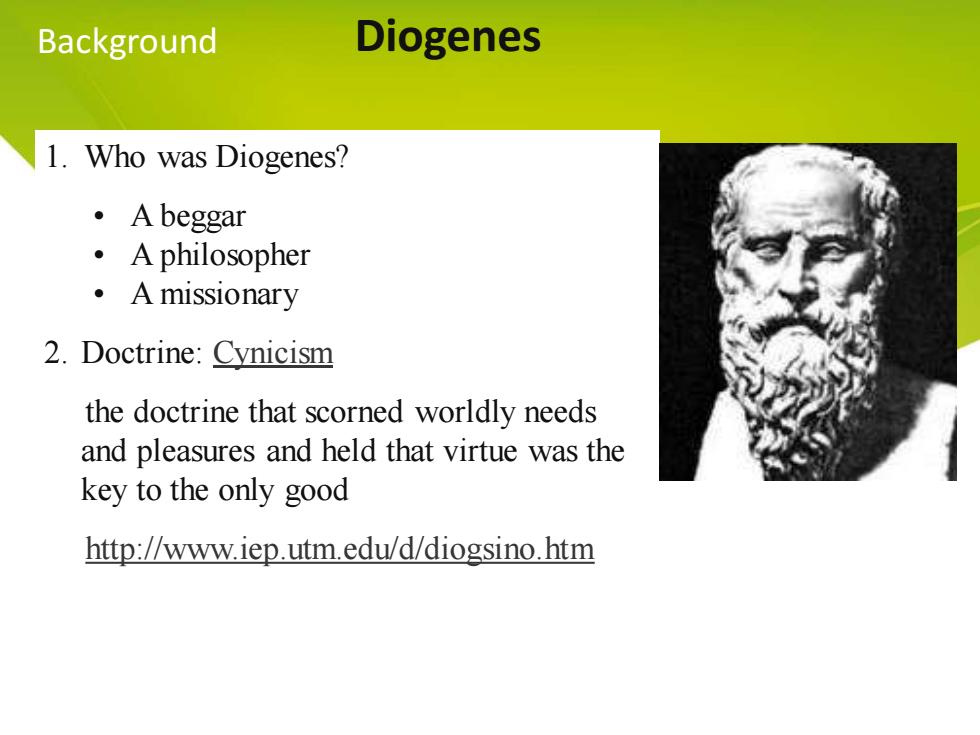
DiogenesBackground1. Who was Diogenes?AbeggarAphilosopher: Amissionary2. Doctrine: Cynicismthe doctrine that scorned worldly needsand pleasures and held that virtue was thekey to the only goodhttp://www.iep.utm.edu/d/diogsino.htm
Background Diogenes 1. Who was Diogenes? • A beggar • A philosopher • A missionary 2. Doctrine: Cynicism the doctrine that scorned worldly needs and pleasures and held that virtue was the key to the only good http://www.iep.utm.edu/d/diogsino.htm
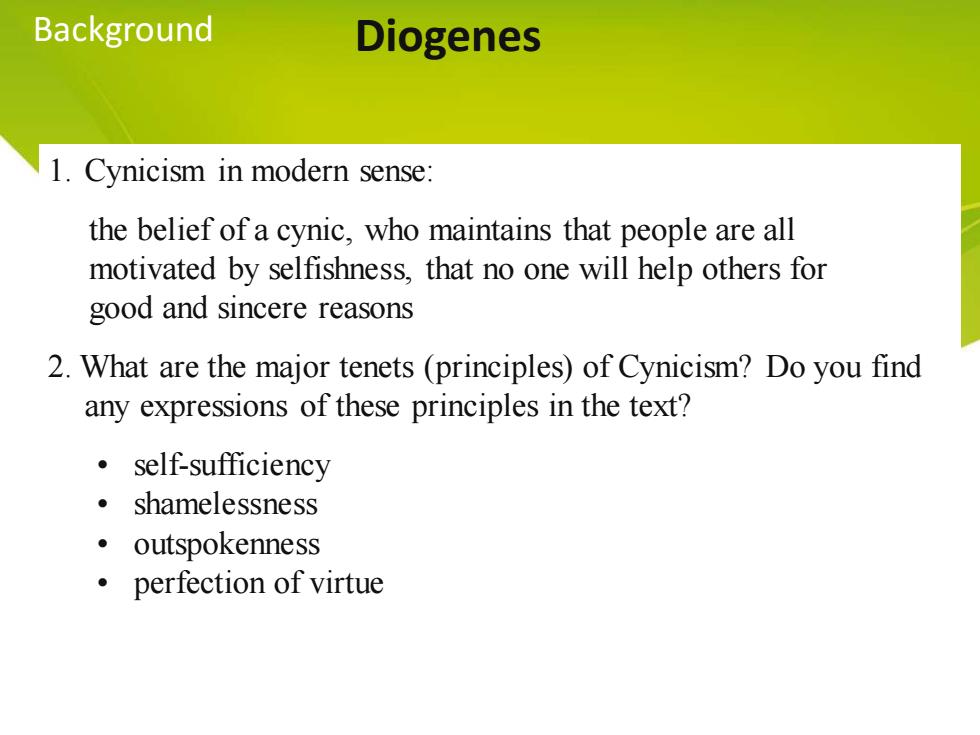
BackgroundDiogenes1. Cynicism in modern sense:the belief of a cynic, who maintains that people are allmotivated by selfishness, that no one will help others forgood and sincere reasons2. What are the major tenets (principles) of Cynicism? Do you findany expressions of these principles in the text?self-sufficiency shamelessnessoutspokennessperfection of virtue
Background 1. Cynicism in modern sense: the belief of a cynic, who maintains that people are all motivated by selfishness, that no one will help others for good and sincere reasons 2. What are the major tenets (principles) of Cynicism? Do you find any expressions of these principles in the text? • self-sufficiency • shamelessness • outspokenness • perfection of virtue Diogenes